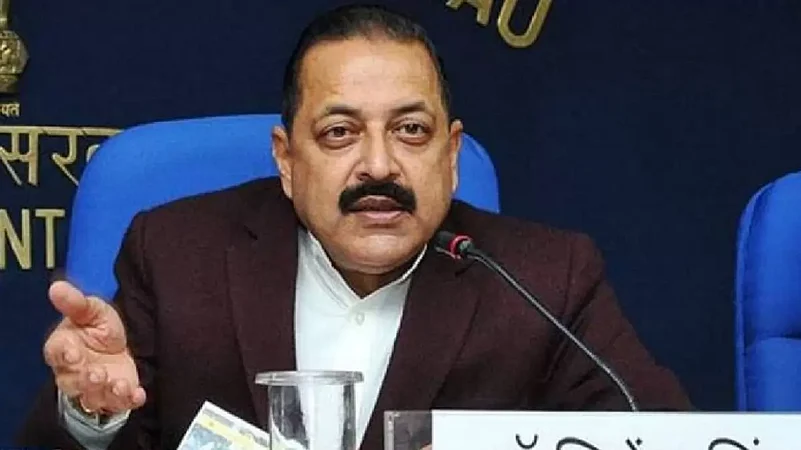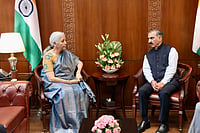Union Minister Jitendra Singh on Sunday said the Centre's reforms in governance would create future-ready employees empowered by digital training platforms.
Addressing the first National Training Conclave organised by the Capacity Building Commission at the International Exhibition and Convention Centre in Pragati Maidan here, he said Mission Karmayogi is inspired by Prime Minister Narendra Modi's vision of consistent capacity building.
"Mission Karmayogi has been designed as a comprehensive programme which would enable civil servants and other government employees to acquire the skills, knowledge and abilities necessary for delivering high-quality public service in a rapidly evolving world," said Singh, the minister of state for personnel.
The National Programme for Civil Services Capacity Building (NPCSCB) or Mission Karmayogi aims to create a competent civil service rooted in Indian ethos, with a shared understanding of the country's priorities, working in harmonisation for effective and efficient public service delivery.
Singh said that encouraged by its successful use among civil servants, it has now also been introduced for new appointees in Rozgar Mela as Mission Karmayogi Prarambh.
In a country as diverse as India, there are complex ranges of issues but it provides the opportunity for civil servants to learn and to improve their ability and expertise, the Union minister said, adding that the Centre's governance reforms would create future-ready civil servants empowered by digital training platforms.
The national training conclave witnessed participation from over 700 national civil service training institutes across the country.
In his address at the conclave, Singh highlighted the various initiatives undertaken by the Narendra Modi government to deliver on the promise of "minimum government-maximum governance".
Following the directions of the prime minister, the first-ever Capacity Building Commission (CBC) has been established, he said, adding that this "first-of-its-kind" institution fulfilled the need to have a dedicated agency for improving skill and a provision for periodic training for government functionaries.
"The commission facilitates the preparation of annual capacity building plans of departments, ministries and agencies, aims to create shared learning resources, exercise functional supervision over all central training institutions and undertakes an audit of human resources in government and outcome of the capacity building efforts," the minister said.
Singh pointed out that in 2014 the government had done away with the colonial-era practice of requiring a citizen to get certificates and documents attested by a gazetted officer or file affidavits for government-related work.
The Government of India, in pursuance of its commitment to zero tolerance against corruption, has taken several measures, including the recent amendments made to the Prevention of Corruption Act, 1988, he said.
The amendment introduces a number of new provisions, including criminalising giving or taking bribes and putting in place an effective deterrence for such actions. It also includes a robust mechanism to protect an honest and performing officer, the minister said.
He also pointed out that the Union government has abolished the process of taking interviews for recruitment to Group-B (non-gazetted) and Group C posts since 2016.
Referring to the transparency mechanism brought in for the implementation of government schemes, Singh cited the Aspirational District Programme to say, "The districts have been selected based on a composite index comprising health, nutrition, education, basic infrastructure and poverty."
- With PTI Input


























